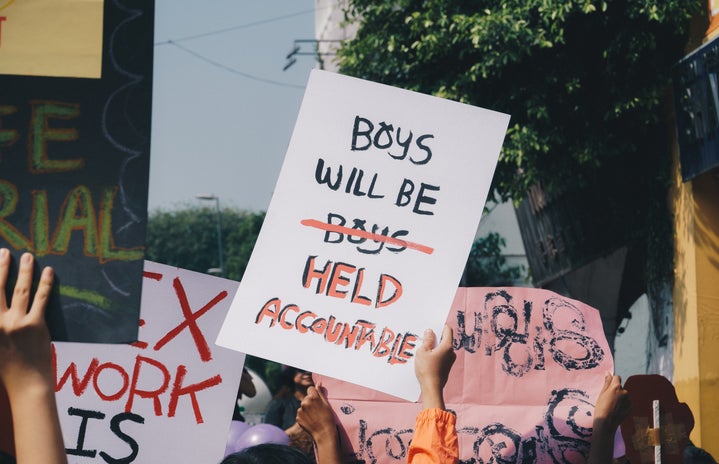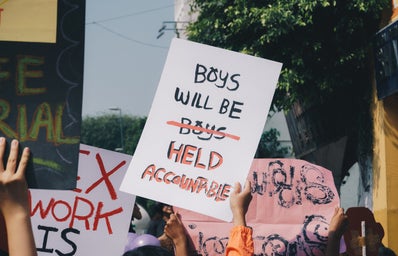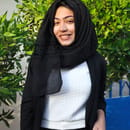*Content trigger warning: in this article, there are mentions of violence which may be distressing.
Growing up I always felt (and still do sometimes) that I was the only person who knew or who cared about the oppression that I saw the women around me experience on a daily basis. It just didn’t make sense to me how someone was unable to notice and then condemn the obvious sexism that exists within so many parts of the South Asian culture that I come from. Every year I would see women’s marches all over the world, including here in Toronto, on International Women’s Day and would feel…
Defeated.
Don’t get me wrong, it was great seeing folks come together and fight for their rights, but the rights that I was fighting for were a little different. That day is usually an annual reminder of how normalized and deeply rooted misogyny is and how I felt I was alone in thinking that work could be done to liberate all Pakistani women.
That was until I was scrolling down my Instagram explore page, in early January of last year, and saw a post about the second annual (and first-ever national) women’s march being held in Pakistan. Upon learning more about the organization or the Aurat March and their efforts to be inclusive of all women and their needs, I felt a warmth spread inside of my soul. I have always seen feminism as being a joint fight, where folks stand together hand in hand because that is the only way we can achieve meaningful change.
Well, this year the third annual Aurat March was held in Pakistan and there are a few things that I think we can all take away and implement in our own fight against oppressive forces.
If your feminism isn’t intersectional, there’s no point to it
Intersectionality was a term coined by Kimberlé Crenshaw and if you want to get a better idea of what it is give her TED talk a watch. Simply put, it is a lens through which we are able to recognize the intersectionality of oppression that people of colour, trans women, women of faith and other minority women face on a daily basis. There are a myriad of ways that this march has been intersectional and I’ll use one example of how: the demands of trans women were centred during the march. From my own experiences visiting Pakistan I have witnessed, first hand, how trans women are time and time again marginalized and forced out of the mainstream society set-up. And when they are included in national conversations about progress, they become “show-ponies” for the Islamic state, to show the rest of the world how “progressive” Pakistan is becoming. During the Aurat March, trans women from all types of communities were not only made to feel welcome, but were placed at the forefront of the fight against the patriarchy. There were also safe spaces provided for non-binary folks to voice their concerns with the healthcare system. It made me so incredibly happy to see that all folks were included in this fight because, otherwise, there would be no point.
Demands that are culturally specific
One thing that I always struggled to understand is how some white cis-gendered feminists never account for their privilege and are the least marginalized women and yet sit at the forefront of the fight against the patriarchy. Also, it is these same women who are the “deciders” of what demands should be set forward for the liberation of women and often ignore the complexities of issues that BIPOC face. That is why seeing how marches happening in each city of Pakistan made me feel hopeful that feminism can include all types of people. For example, the issues being protested this year ranged from human rights violations in Balochistan, vilifying the way that the march is portrayed in the media to giving women the respect that they deserve as per Islamic social and religious norms. Even the name of the march (inclusion of “aurat” instead of the English translation, “women”) was personalized to fit the specific cultural needs of all Pakistani women, and not just white women.
I think the main takeaway from the series of demands and needs that were set forward by the organizers of the march shows that community consultancy is so important in being inclusive. Listening to someone to hear their concerns and listening to someone to rebuttal their concerns, because we have our own preconceived notions of what feminism looks like, are two different things. The second we realize this and start implementing it, is when we’ll see that we are indeed united in this fight.



